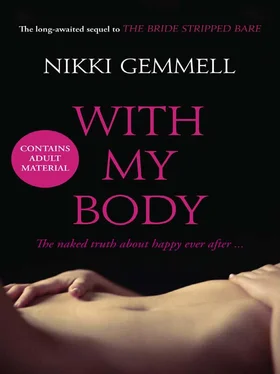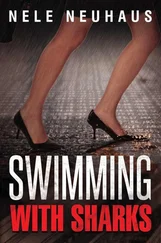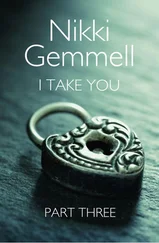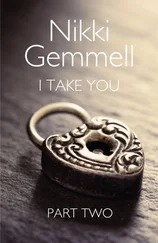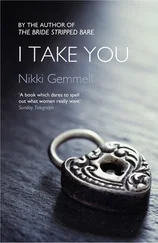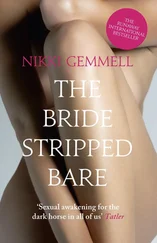You will always be an outsider here. You revel in not-belonging, enjoy the high vantage point. Marvel, still, at the strict sense of place, of class they cannot breach – the fishing and shooting, the villas in France, the stone walls that collect the cold and the damp, the wellies even in July, the jumpers in August, the hanging sky like the water-bowed ceiling of an old house. How can it hold so much rain, cry so much? Days and days and days of it and at times you just want to raise your arms and push up the clouds, run. Hugh will never move to Australia, he has a blinkered idea of it as the end of the earth and deeply uninteresting, really – that the only culture you’ll find there is in a yoghurt pot.
You can see your whole future stretching ahead of you now until your body is slipped into this damp black earth, the years and years of sameness ahead. Once, long ago, you never wanted to be able to do that, curiosity was your fuel, the unknown. You carry your despair in you like an infection that cannot be shaken.
But now. A dangerous will inside you to crash catastrophe into your life, somehow, God knows how – or with whom. It’s been brewing for years; it’s something about reaching your forties and seeing all that stretches ahead. You’ve never been fully unlocked with Hugh and bear responsibility for that, entirely.
For always wearing a mask. For not being entirely honest. For never showing him your real self.
Unhappiness of soul – a state of being often as unaccountable as it is irrational

‘How are you?’ the lovely, cheeky Bengali man in your newsagency asked before school pick up today.
You replied, distracted, ‘I have no idea.’
The ultimate flaky mum, you know he thought.
But it was the truth. You have no idea. Have lost the woman you once were. Cannot simplify your life. Had so much energy for so much, once; now your days are taken up with so many bitsy, consuming, domestic things. You catch yourself talking aloud as you walk away down the High Street. Is it madness or preoccupation or mere motherhood. In a window reflection you gasp at yourself scowling, jaw set. There’s the niggle that now you’re married you are somehow less. Just the little wife. Hugh doesn’t mean to convey that but he does. There’s a subtle and discernible loss of confidence, so insidious, as you lean on another for so much and you never did that, once. As you have somehow allowed over the years your petrol tank to be filled and restaurant dinners to be decided for you, sweets secreted to your kids, Nintendo Wiis gleefully bought behind your back, theatre tickets purchased for plays you don’t like.
You cannot explain how circumstances have closed over you, how you became a woman who lost her voice.
But you know there’s only one person who can haul you out.
It is five o’clock.
The potatoes have to be peeled and the toilet unblocked; it’s probably a plastic toy, it’s becoming a habit with Pip, your youngest.
You have to change this life, somehow, or something in you will implode like a depth charge way beneath the surface.
There are very few families whose internal mismanagement and domestic unhappiness are not mainly the fault of the mistress

Nine p.m. Just the dishwasher to unpack now and then you’ll draw your bath and unclench, at last, in the warmest room in the house, the main bathroom.
The phone. Susan. A mum from the boys’ school and you don’t know how it came to this: a Susan so entwined in your life. Rexi is friends with her eldest, Basti. You met when the boys were in the same nursery and then they moved to primary school together, have known each other for years. It is assumed. But you became friends before you realised how unsettling she is. A mother with an overdeveloped sense of her own rightness, with everything, and there’s something so undermining about that.
Every conversation, to Susan, is a form of competition; there must always be the moment of triumph. When she’s first seen every morning, at the school gate, she forces you to say how lovely her little girl looks, to compliment.
‘Look at Honor, she dressed herself today, doesn’t she look gorgeous?’
‘Where’s Honor, is she hiding on my shoulders?’
‘Isn’t she beautiful?’
Yes of course, and you are a woman who does not have a daughter but it would never cross Susan’s mind that the keenness for a girl once sliced through you like a ragged bit of tin; you can’t deny there was a moment of disappointment at each subsequent son who appeared from your womb – just a moment, wiped as soon as you held them to your breast. And now, every day at the school gate, there is the ritual noticing of what you do not have, every day this conversation you have somehow allowed in your life.
Susan is obsessed by her children. Like no other woman you know. Always talking about how good her Basti is – at maths, swimming, art, he’s just swum four laps, helped plant her herb garden, is never sick, always good – not one of those naughty ones.
You always cringe at this – your boys are boys, you adore them but they are not always the best; often your heart is in your mouth when your family is with other people, about what may be said, knocked over, who may be shouted at. Susan is critical of your Rexi whenever he’s had a play date. Always, on the doorstep when you pick him up, you have to submit to her little ritual of complaint. The only time you can ever remember her complimenting your eldest was when she said, in wonder, ‘He’s good looking … now.’ Now. Your beautiful, sunny, ravishing boy, from day one.
‘Rex didn’t eat his food … wouldn’t play with Honor … was very loud …’
You have allowed it, for so long – Susan’s reward for taking one son off your hands, for giving you a blessed break; it means one less child for a few hours and you both know how needed that is in your life, a tiny sliver of extra space.
A state of sublime content and superabundant gaiety – because she always had something or other to do.
If not for herself, then her neighbour.

It is nine-fifteen and Susan is still on the phone and inwardly, at her voice, there is a tightening in your stomach, a knot – what has her Basti excelled at today, what triumph has to be endured? And your head is full of the ‘Shout Book’ you have just discovered under your middle child’s bed. Jack has recorded, meticulously, every time he is yelled at. By you. In writing neater than it’s ever been at school.
Saturday: 14th January. 2 times.
Sunday: 15th January. AMAZING. Nothing.
Monday: 16th January. 3 times.
Devastation. Today it was all to do with him wearing a good shirt to his grandmother’s tomorrow, for her birthday tea.
‘I hate that button shirt so much it makes me walk backwards,’ he had shouted.
You laughed at the time and later jotted it down; for what, God knows. You had to laugh, they give you so much and don’t even know it. These bouncy, shiny little scamps fill every corner of your life, plump it out; you love them so consumingly but you’re not sure they believe it, Jack most of all, your middle child you worry will one day slip through the cracks.
‘Please, God, stop Mummy shouting,’ was his prayer tonight.
‘Don’t!’ came his muffled protest from under the duvet when you tried to tickle him into giggles, to kiss away all your guilt, but he recoiled as if your touch would scald him which only made you want to caress him, cuddle him, envelop him all the more.
Читать дальше
